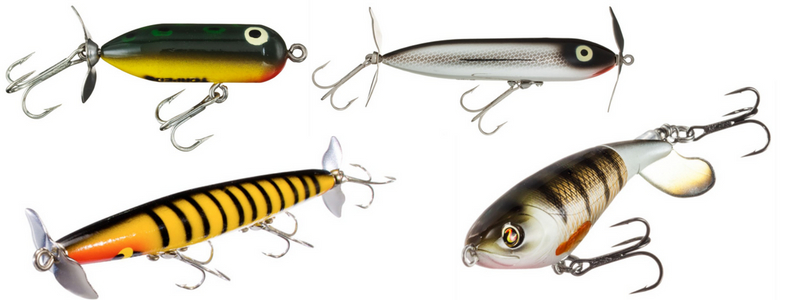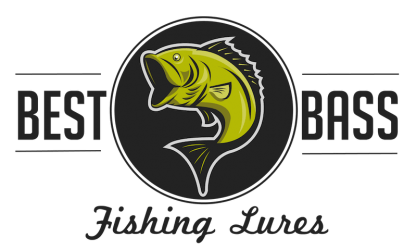

When most older anglers think of a prop bait, they probably think of the Devil Horse made by the Smithwick Lure Company back in 1949. That was the first of it’s kind and still available today, but there have been many more made since then.
A prop bait is categorized as a topwater lure, and is a torpedo-shaped hard bait with one or more propellers on it. As the bait is retrieved the propellers spin and chop the surface of the water. This creates sound and water disruption that is designed to sound like prey swimming on the surface.
Prop baits are kind of an old fashioned style lure that have not been very popular in recent years, but there is a relatively new one that anglers can’t seem to get enough of called the Whopper Plopper. It’s a bigger bait that seems to be drawing in the swimbait crowd and other anglers in pursuit of big bass.
Fishing Prop Baits
No matter what kind of prop bait you’re fishing, they all work the same. They’re very simple bass lures to fish, simply cast it out and reel it in at a speed fast enough to engage the propellor or propeller. Pretty similar to the way you would fish a buzzbait, except prop baits float so you don’t need to reel them as fast and you can let the bait pause from time to time.
And that’s something you should be trying. Prop baits can be very effecting when reeled in a straight retrieve, but sometimes it takes a little erratic action during the retrieve to trigger a bite. This could be a random jerk from time to time or by simply stopping the bait suddenly for a few seconds then start reeling again.
One of the most effective methods when fishing prop baits is ripping the bait across the surface in bursts. This is done by pulling the bait a few feet at a time with your rod then reeling in the slack. While you’re reeling in the slack the bait is paused there until you yank it again. This is a great method for triggering a reaction strike.
There is one big advantage to using these baits and that’s the fact they they just aren’t being used very often so bass are’t seeing them as regularly as they see more popular lures. Bass become conditioned to lures after a while and sometimes casting out something different can get a bite on a tough day.

